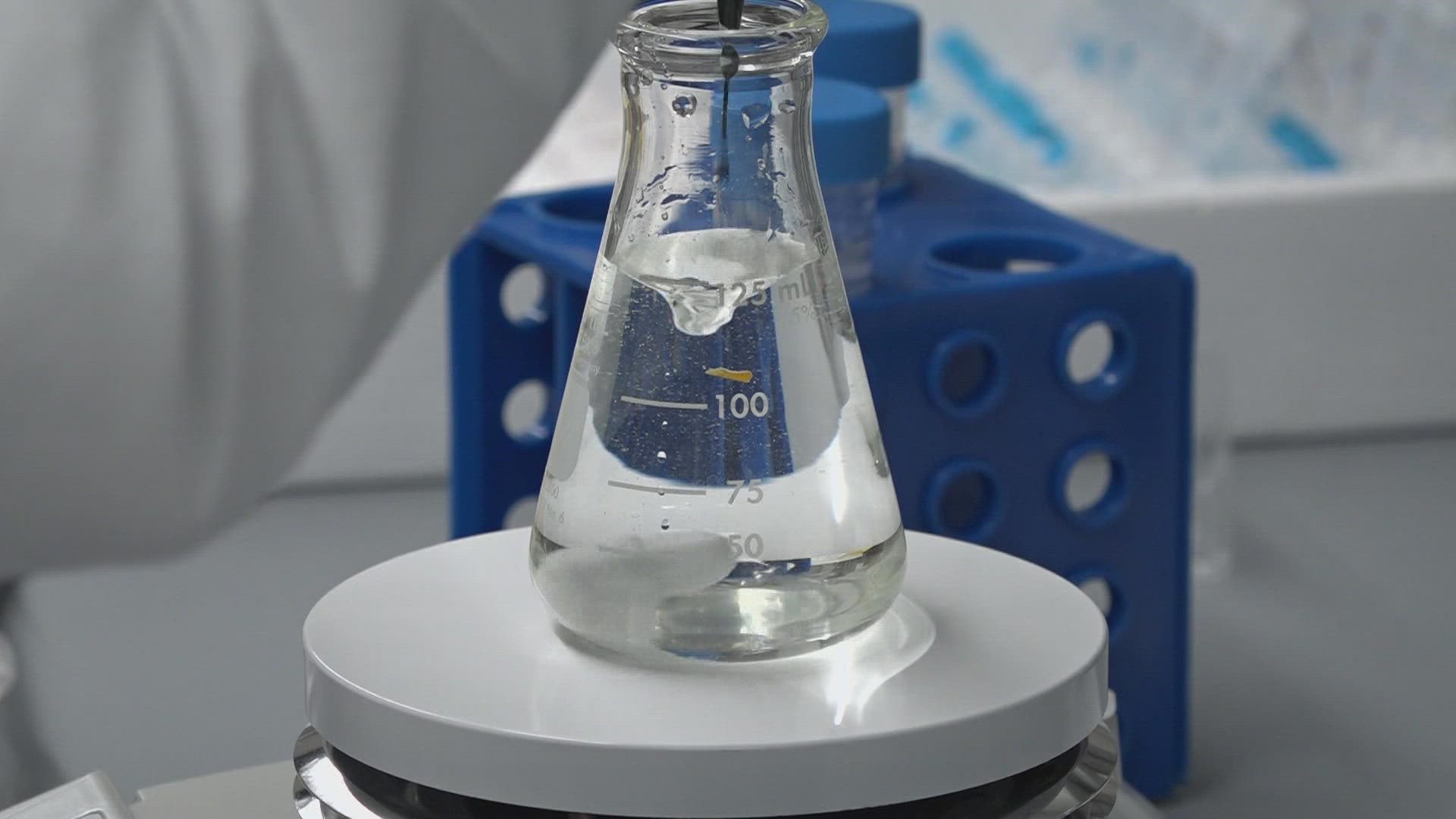ORONO, Maine — As we head into winter, Maine has already seen a surge in viruses in hospitals and schools.
To help to keep these viruses and bacteria at bay, researchers at the University of Maine, UMaine Cooperative Extension, and the University of Massachusetts Amherst have teamed up to design a new kind of air filter that is coated in liquid.
The idea is inspired by the pitcher plant. The liquid can trap viruses and bacteria on the filter and keep them from spreading.
The liquid can also preserve the bacteria or viruses for future testing.
The group was able to develop a handful of different filters with the liquid coating, all of which could preserve E. coli bacteria, SARS-COV-2, and JC polyomavirus.
Associate professor Caitlin Howell led the team and believes this technology will add another option for surveillance testing.
"HEPA filters are really good at what they do. They can clear out virus, they can clear out bacteria," Howell said. "What they can't do is give you the ability to then collect what was on the surface of the filter and test it to see if it is dangerous. That's our invention."
Researchers hope the filters can one day be used in public spaces, like schools, where viruses often spread fast.
"The point of this project is to use these filters in high traffic areas, and so with RSV, we could implement them in hospitals, airports, etcetera," Avery Bond, a Ph.D. student on the project, said. "Potentially schools even, to sample what viruses are circulating in the air and maybe get ahead of the problem."
To learn more about the research, you can visit the ACS Applied Materials & Interfaces journal, where the team's work was published.

